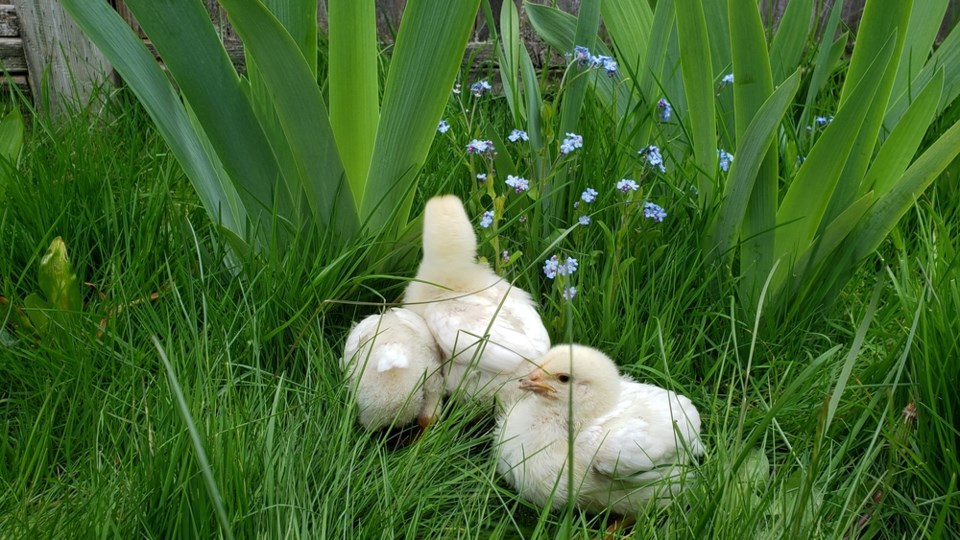Animal welfare advocates have had their feathers ruffled after a handful of baby chicks brought out for an Easter event at the Capilano Suspension Bridge ended up being sold, then given away on Craigslist.
Chantelle Archambault, communications director with the Vancouver Humane Society, said her organization was disappointed to learn from members of the public that baby chicks had been brought in for the Hoppy Heights Easter event featuring displays of bunnies and chicks, then offered for sale to the public later.
“We think it’s very irresponsible to bring live chicks like that to an event,” said Archambault – particularly in light of the recent outbreaks of avian flu in the province.
Bylaws ban keeping chicks under four months old
In the case of the chicks that were sold, often people don’t appreciate what’s involved in taking care of chickens, said Archambault. Many municipalities – including the District of North Vancouver – have bylaws governing the keeping of chickens. In the district, owning chicks under four months old is banned, because it’s often impossible to tell if those chicks are hens or roosters, said Archambault, and roosters are not allowed.
Residents must also get a permit for keeping chickens and construct a proper chicken coop.
One North Shore animal advocate, who goes by the name of “Ella,” said she found it offensive that the chicks were brought in, only to be gotten rid of after the five-day Easter event.
Ella said she ended up with all six chicks a week after the event after the two families who had originally bought them realized they couldn’t take care of them and advertised for another home.
“It’s so irresponsible,” said Ella of the decision to bring in the chicks. “I felt they exploited these animals and turned a profit.”
Ella said when chicks are that young “there’s no guarantee they’re all hens.” Then, if some of the chicks turn out to be male, people are forced to find some way of getting rid of the young roosters. “Who knows what they’ll do?” she said. “It’s animal cruelty, to sell them to people to just purchase on a whim.”
In the case of one family, the father realized belatedly he didn’t have time to build a proper chicken coop legally required for keeping backyard chickens in the district.
Ella said she’s not keeping the chicks and has arranged to take them to a farm on Vancouver Island.
Animal events owner defends practices
But the owner of the company hired to bring the chicks for the Easter event said what happened is being blown out of proportion.
Jen Neville, owner of Cinemazoo, an Abbotsford-based company that rents animals for events, said chicks are the only animals that she ever has to “re-home” after.
Neville said she ordered 100 chicks for the Hoppy Heights event and had a “wrangler” on site to take care of them. Usually chicks go to farms in the Fraser Valley after an event, she said. In this case, that’s what happened to most of the chicks. But two local families also asked if they could buy some chicks after the event, which she agreed to.
Neville said she wasn’t aware that the District of North Vancouver bylaw prohibits owning chicks under four months old.
There was minimal touching of chicks by anyone but staff at the event, she said, adding avian flu was not an issue in the Lower Mainland at the time of the event, three weeks ago.
On Wednesday (May 4), the virus was reported in a flock in Richmond. It has also been reported in a handful of other flocks in B.C. and in wild birds.
Neville said she’s had past events where advocates have taken issue with the use of animals. She said her animals aren’t mistreated, and live the rest of the time on her farm in Abbotsford. “I’m in my barn 20 hours a day,” she said.
Stacy Chala, communications manager for the Capilano Suspension Bridge Park, said in a statement their understanding was the chicks would go back to homes in the Fraser Valley after the event.



